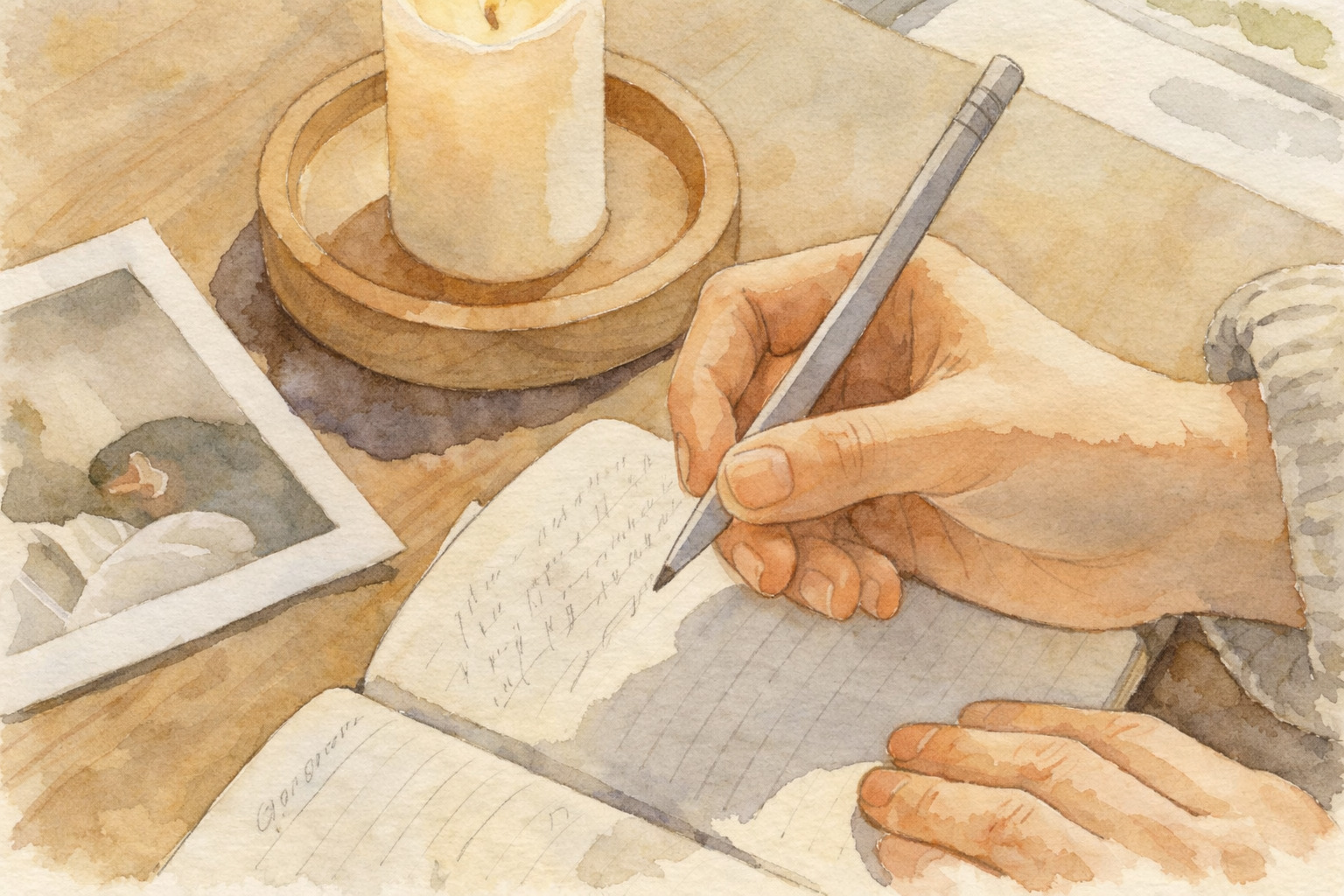(and What to Say Instead)
Grief can make even kind words feel heavy. The goal is not perfection, it’s presence. These common phrases that can unintentionally hurt and better ways to offer comfort.
Category 1: Words That Minimize the Pain
These phrases may accidentally make grief smaller or easier, which often makes people feel unseen.
- “At least they lived a full life.”
- Try instead: “It sounds like they meant a lot to you. I’d love to hear more about them when you’re ready.”
- “At least they aren’t suffering anymore.”
- Try instead: “I’m free if you want to talk about what feelings are coming up for you.”
- “Everything happens for a reason.”
- Try instead: “I don’t have words, but I’m here with you.”
- “God doesn’t give us anything we can’t handle”
- Try instead: “I hope you’re feeling supported by your faith. How are you holding up today?”
Category 2: Rushing the Process
Grief takes as long as it takes. If you say things that feel like rushing the process, it can make the person navigating grief feel worse. It’s not uncommon to feel like “moving on” is a betrayal to the person you lost.
- “It’s time to move on.”
- Try instead: “You can take all the time you need.”
- “You need to stay strong.”
- Try instead: “You don’t have to be strong right now.”
- “They wouldn’t want you to be sad.”
- Try instead: “How do you think they’d want you to grieve them?”
- “You’ll feel better soon.”
- Try instead: “There’s no timeline for this. I’ll walk with you through it.”
Category 3: Comparing Pain
No two grief experiences are exactly the same. Avoid language that feels like comparison. If you’re making comparisons, it’s a good reminder to listen more.
- “I know exactly how you feel.”
- Try instead: “I’ve felt loss too, but I know yours is your own. I’m here if you want to talk.”
- “At least you still have [another person or thing].”
- Try instead: “Losing them must leave such an empty space.”
- “I can’t (or can) imagine how you’re feeling”
- Try instead: “I’m here to support whatever this grief brings up for you.”
- “Other people have it worse.”
- Try instead: “Your loss matters.”
Category 4: Putting the Burden Back on Them
Even well-meant offers like, “How can I help?” can feel exhausting when someone is barely getting through the day. Very often the person navigating grief is getting similar messages from a lot of people. The goal is to act, not ask – especially immediately after loss.
- “How can I help?”
- Try instead: “I’d like to drop off dinner on Thursday. Do you have any food preferences?”
- “Call me if you need anything.”
- Try instead: “I’ll check in next week. Don’t feel obligated to respond. If you need anything sooner, feel free to call anytime. ”
- “Let me know what you need.”
- Try instead: “Can I handle errands or make a meal for you?”
- “I didn’t want to bother you.”
- Try instead: “I’ve been thinking of you. I’m here when you’re ready for company.”
Remember: If you say one of these things, that’s okay. Keep showing up and don’t be afraid to simply ask, “is there any way I could be supporting you better?” What matters the most is showing up.



